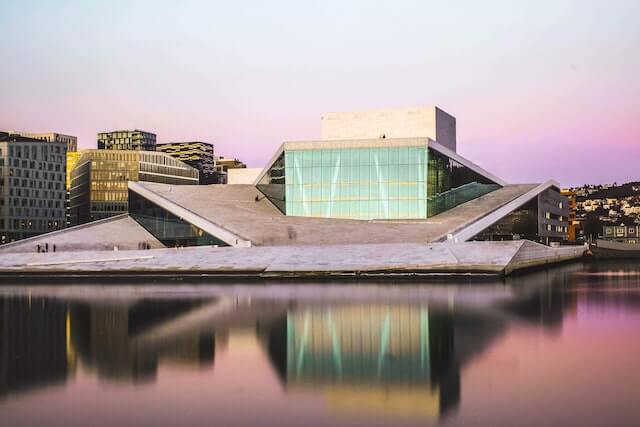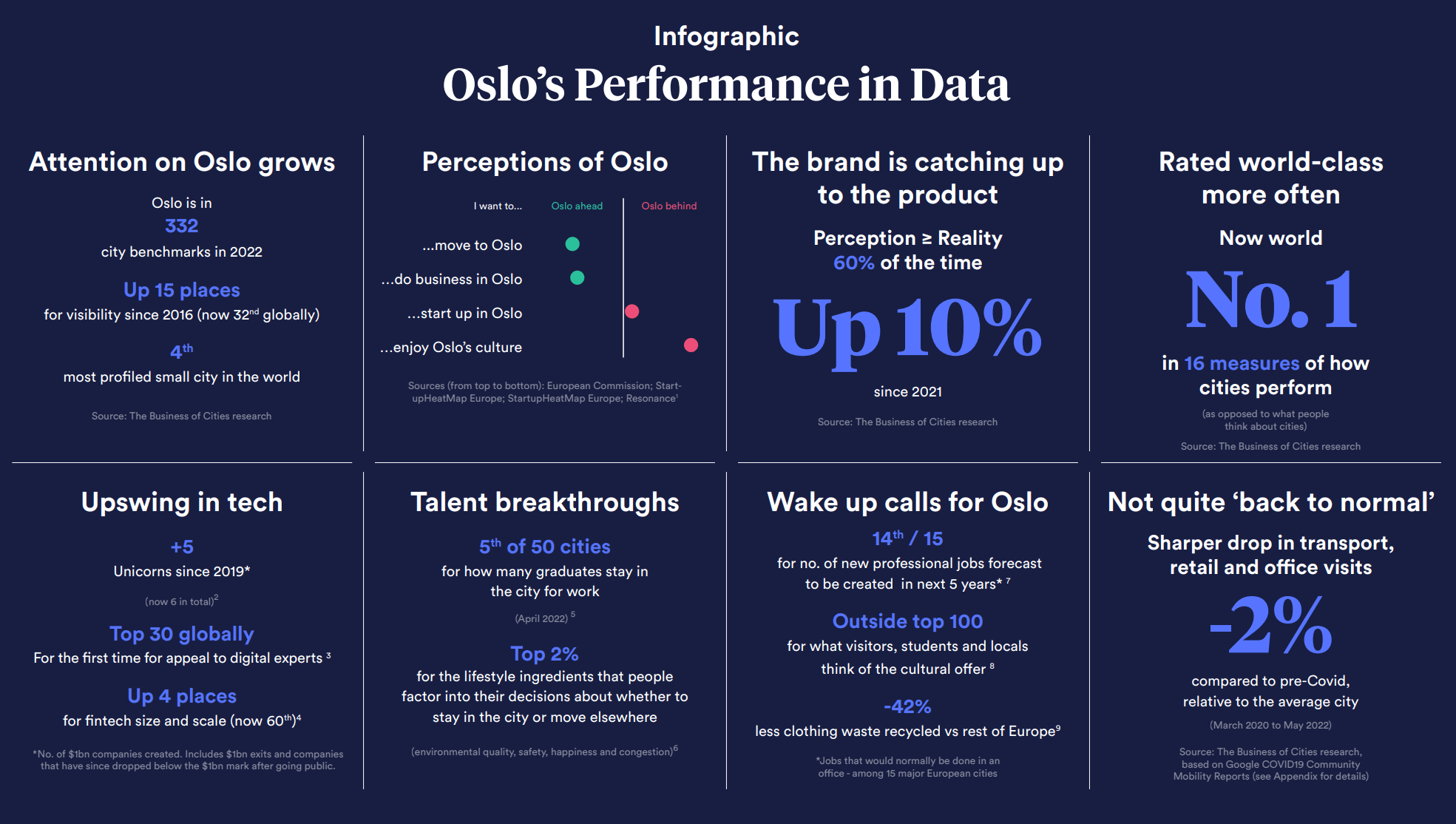Doing business in Oslo

Oslo is Norway’s capital city and one of Europe’s most vibrant and diverse ones. The city itself has a relatively modest population with just over 700.000 inhabitants, the larger metropolitan area houses well over 2 million people. It is also home to a thriving business community that offers excellent opportunities for companies looking to make their mark in the region. From small startups to multinational corporations, Oslo has something to offer everyone.
Location, location, location
Fast growing startup city
Oslo is well-known for its thriving startup culture, with many new businesses being established every year. In fact, the city was listed as one of the top 30 cities globally for entrepreneurship in 2020. This makes it a great place for entrepreneurs who want to take advantage of existing networks and resources while getting ahead of the competition in their sector.
For more information on the startup scene in Norway, read this article.
A great place to work and live
First of all the bad news: Oslo is expensive. Compared to many other countries, very expensive. Oslo is in fact known to be one of the most expensive cities in Europe, with prices for everyday goods and services such as food and drink, housing, transportation and entertainment significantly higher than other cities in Norway and Europe. This largely stems from the fact that Oslo has a high cost of living due to its status as a major urban center with limited resources. Taxes on imports as well as relatively high VAT also contribute to the higher cost of living in Oslo.
The housing market is also very pricey in Oslo, with many expats opting for short-term leases or furnished apartments instead. Prices vary depending on location and quality but expect an average monthly rent of around 15 thousand NOK (1500 EUR) for a one bedroom apartment in the city center. Although prices may seem steep at first glance, it is important to consider all the benefits associated with living in this vibrant city such as access to cultural activities, excellent educational institutions and strong economy which makes up for some of the higher expenses incurred by residents looking to settle down here permanently or temporarily. Not in the least, both healthcare and education are free of charge.
This is why startup founders and digital nomads looking for a decent place to live are increasingly attracted by Oslo. Most of all, because despite all the above, the city is well-known for its extraordinarily good work-life balance.
Read more reasons why Norway is worth considering as you and your business' next destination.
Europe’s Green capital
We wrote earlier that Norway is increasingly turning away from the oil industry and is focusing on new, more sustainable industries and activities. This is very visible in Oslo and surroundings. The EU named Oslo the Green Capital of 2019. And for good reason: The city boasts a strong focus on sustainability and innovation, which makes it an ideal environment for businesses looking for innovative solutions to their challenges.
How to start a business in Oslo
As a resident of Norway, this is relatively simple. In most cases, you choose between a sole proprietorship (in Norwegian: ENK) or a private limited company (in Norwegian: AS). Which one is best in your case depends on the nature of the business, whether you are looking for outside investors, the size of the business and several other factors. To read more about this, we recommend you to read our full guide on starting a business in Norway.
Open a company in Oslo in 5 steps
Below are the 5 steps to follow when opening a private limited company (AS) as a foreigner in Norway. If you need further assistance, feel free request a quote.
Get help from our professionals
Buying an existing company in Oslo
As an alternative to setting up a new entity, buying an existing business in Oslo can be a great way to expand your business. A platform like bedriftsbørsen specializes in selling existing businesses, offering everything from small-scale start-ups to larger companies. Many of these businesses are well established and come with years of experience, allowing you to take advantage of the local market without having to start from scratch.
When buying an existing business, it is important to have a thorough knowledge of the Norwegian regulations on acquisitions and operations as well as to seek professional advice from legal and financial advisors. It is also important to conduct due diligence such as researching the company’s financial history, its management structure and customer base in order to make sure that you are making a sound investment.
Office space and co-working in Oslo
Coworking in Oslo is quickly becoming an attractive option for entrepreneurs and small businesses. With its convenient location, easy access to international markets and talented workforce, it's no surprise that the city has seen a rise in shared workspaces over the past few years.
From traditional office-style coworking to ultra-modern open plans, Oslo offers plenty of options for those looking to collaborate with like-minded professionals. For those wanting a more private work experience, there are plenty of dedicated desks and private offices available for rent in some of the city's most desirable areas. The most well-known office provider is Mesh, which has several locations and is more authentic than some of the larger coworking concepts (i.e. WeWork, Spaces etc.) that have entered the capital in recent years.
Businesses can also take advantage of additional services such as meeting rooms, event spaces and virtual offices which provide access to all the amenities needed for running a successful business. Coworking spaces also offer great networking opportunities as they attract professionals from many different fields and disciplines from around the world. This makes them ideal places for making connections and forming strategic partnerships that can help boost your business.
Finally, if you are looking for a more traditional office to rent or buy, the best starting point is Finn.no. This website has the most comprehensive overview of available corporate real estate in Oslo.
Oslo compared to other Norwegian cities
Norway business FAQ
Further reading on Oslo
Read our practical guide on doing business in Norway. This article explains in easy steps how to set up and run a business as a foreigner in Norway.
Download the State of the City report 2022 (pdf) by Oslo Business Region.. This comprehensive report tells you everything you need to know about the progress of Oslo as a startup and business city.

